Published
- 09:00 am
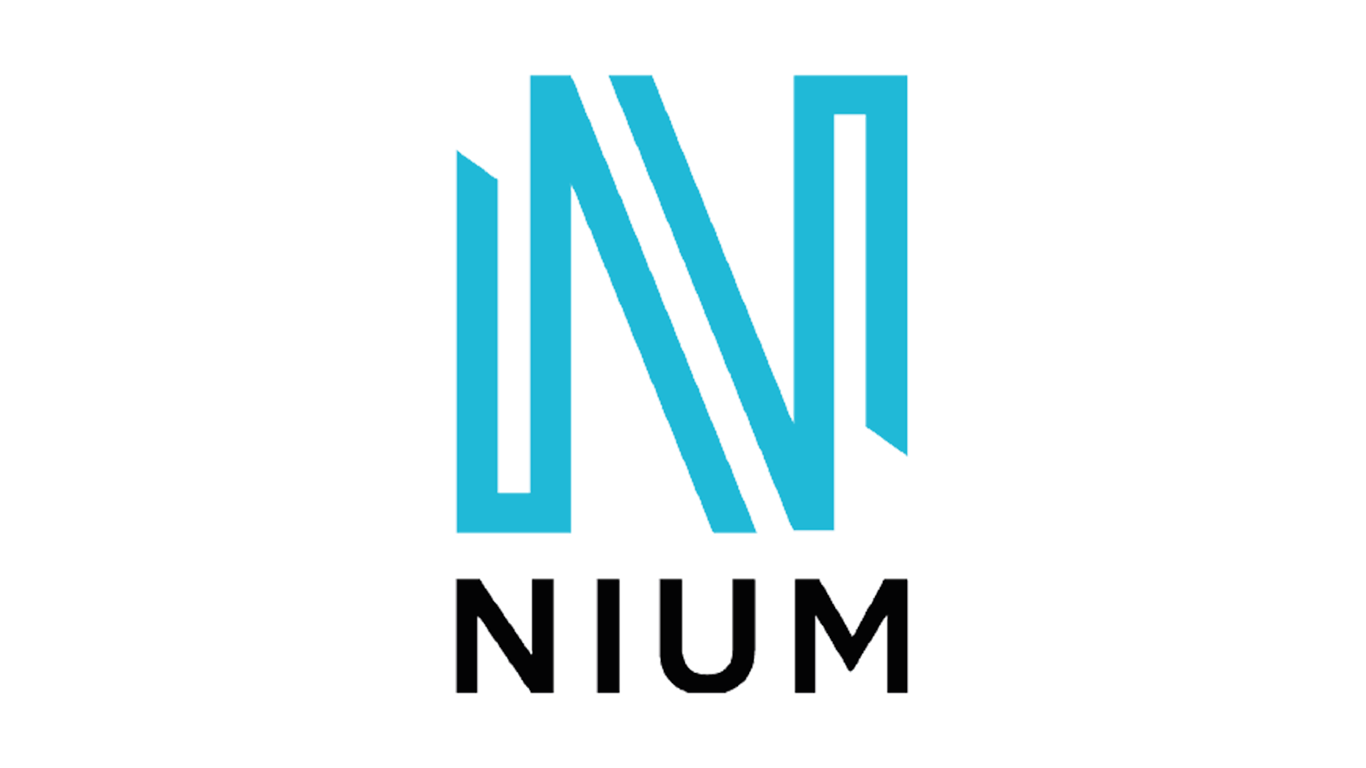
Nium, the leader in real-time global payments, has enhanced its market-leading global payroll payments solution to support the complex needs of global payroll platforms. Nium’s payroll solutions simplify global growth for a majority of global payroll platforms, including Panther, a provider of global employment, payroll, benefits, and contractor software that can be integrated with an HR tech stack.
In addition to expanded network and currency coverage in Canada, Africa, Middle East, Latin America, and Asia Pacific, new enhancements to this offering include:
- Foreign Exchange (FX) Transparency: Allows for end-to-end FX control, which includes transparent costs with a single clear FX markup and one low per-transaction fee to help manage costs at scale. With this, clients can schedule bulk conversion for ease and control, lock FX rates to manage FX fluctuation, and configure fees at the customer level for flexibility;
- Beneficiary Pre-screen and Confirmation of Payee: Minimizes potential returns with verified payee information and keeps the payment process quick and smooth;
- Scheduled Payouts: Enables clients to disburse payments to their workforce on a certain date. Provides predictability to their clients’ employees on when to expect to receive their salary payouts;
- Direct Debit in the US, UK, and EU: Provides the ability for platform clients to pull funds from their customers’ primary bank accounts into their Nium wallet to fund payroll payouts, this improves cash flows and reduces friction.
The global payroll outsourcing market was pegged at $9.9 billion in 2021, according to U.S.-based Allied Market Research. Growing at a CAGR of 7.2% from 2022 to 2031, the market is expected to reach $19.5 billion – making it one of the largest and fastest-growing opportunities in global payments. The need to hire at scale across borders is rapidly becoming a key competition for companies. But, adding remote workers adds significant cost and complexity to payroll operations, simplified by the growing number of third-party payroll platforms. Specifically, 80% of companies believe that transparent foreign exchange rates are important for payroll providers. By making Nium’s fees transparent, its clients can have more control over their finances.
“Global payroll is hard," says Robin Gandhi, CPO of Nium. “Every country has different regulations, including tax laws, employment laws and data privacy laws which make the compliance process tricky, and that's what payroll platforms do best. However, getting money to every employee or contractor on payday in their preferred account, on-time, and across multiple geographies is not easy. With our global payments network and payroll-specific functionality, we make payroll seamless, so platforms don’t have to worry about the technical and legal lift to send money across the world knowing that their employees will have access to funds when they need them.”
“We trust Nium to move funds reliably, quickly, and compliantly around the world and across different corridors,” said Matt Redler, CEO and Co-founder of Panther. “We consider their payroll solution a trusted component of our engine. Specifically, their transparent FX capabilities allow us to price our FX revenue stream in a competitive way. We’re excited about Nium’s payroll enhancements and our continued partnership.”
Nium's payroll solution goes beyond the ordinary, offering a comprehensive suite of products to empower global payroll platforms and businesses to seamlessly onboard, transact and manage payroll for employees and contractors worldwide, including competitive FX, built-in compliance, real-time payments, security offerings, zero-deduction wire transfers, and multiple market coverage. However, the company understands that payroll is not merely a transactional process; it is mission-critical money movement that holds the power to impact lives and it’s important to have a partner businesses can trust. By leveraging Nium's global payment platform, platforms and businesses can put their trust in Nium while they focus on growing globally with improved operational efficiency and exceptional customer experience.
Related News
- 07:00 am
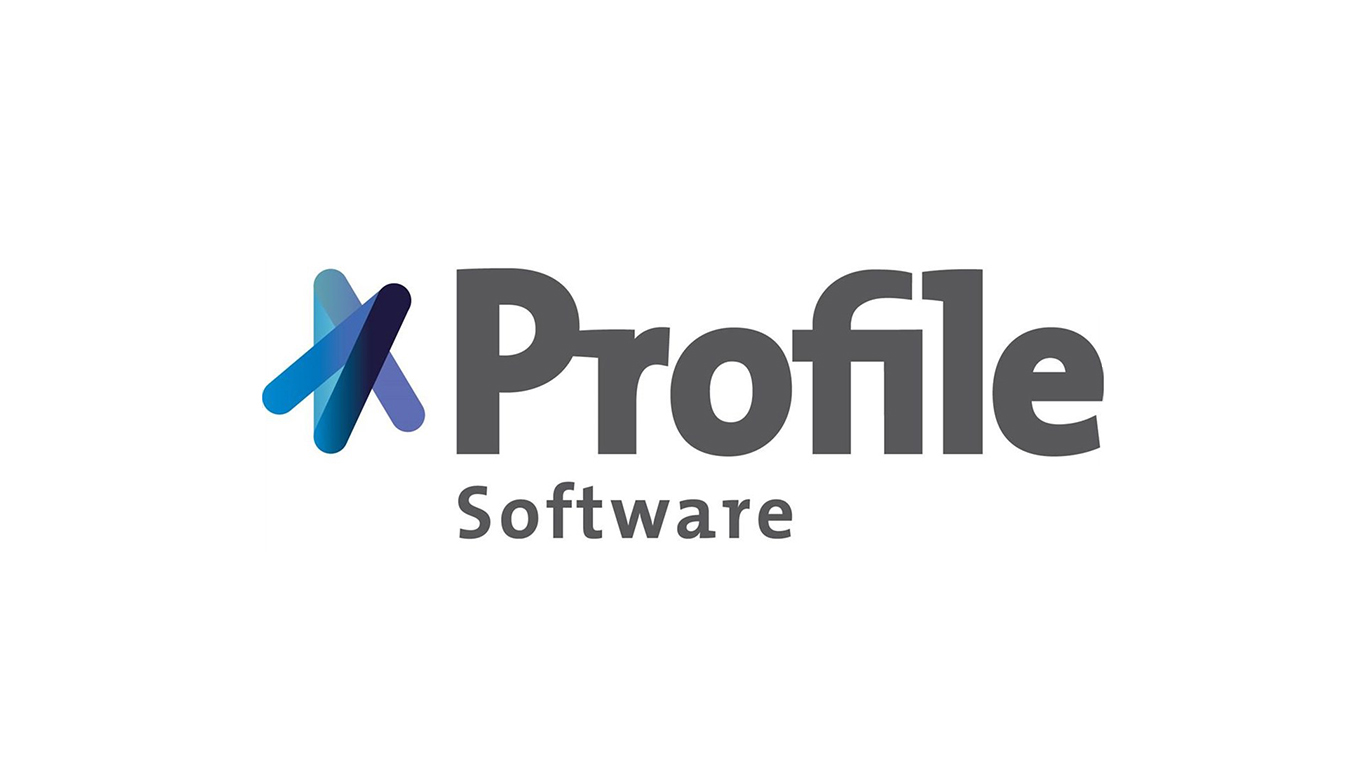
Profile Software, a leading financial solutions provider, has announced today they are collaborating with Amazon Web Services (AWS), a leading cloud service provider, to offer their Finuevo Suite solution as a cutting-edge Software-as-a-Service (SaaS). Finuevo Suite combines Finuevo Core and Finuevo Digital, making it an end-to-end banking solution with a pioneering digital banking top-of-the-line system. This integration shall enable the company’s clients to benefit from leveraging the power of cloud to completely transform their banking operations.
The cooperation with AWS dates back to 2021 when Profile Software integrated the Finuevo Core platform on AWS. The next year, Profile Software introduced Finuevo Digital, the pioneering digital banking platform, empowering banks to enrich the digital customer journey.
Finuevo Suite, offered as SaaS shall enable banks to unlock a series of benefits including enhanced agility, seamless scalability, fortified security measures and superior performance. In the same notion, banks are expected to benefit from the extended availability of the solution across geographical regions, reducing the need for costly on-premises infrastructure.
Dr. Apostolos Kritikopoulos, Group Technical Director at Profile Software says that “we are pleased to extend our offerings through the cloud by reaching financial institutions on a global scale. Our collaboration with AWS enables the financial institutions to use resilient systems by offering enhanced experience and enriching the digital transformation journey of their clients, which will contribute to building a sustainable business over time”.
Mr. Przemek Szuder, Director, Central and Eastern Europe at Amazon Web Services, points out that “banks of every size have clearly understood the need to transfer their operations to the cloud as this option offers them the opportunity to modernise, expand the availability of their offering on a global scale and thus reduce costs and drive business growth”.
Profile Software remains committed to empowering financial institutions worldwide to achieve sustainable growth through advanced SaaS solutions.
Related News
- 04:00 am
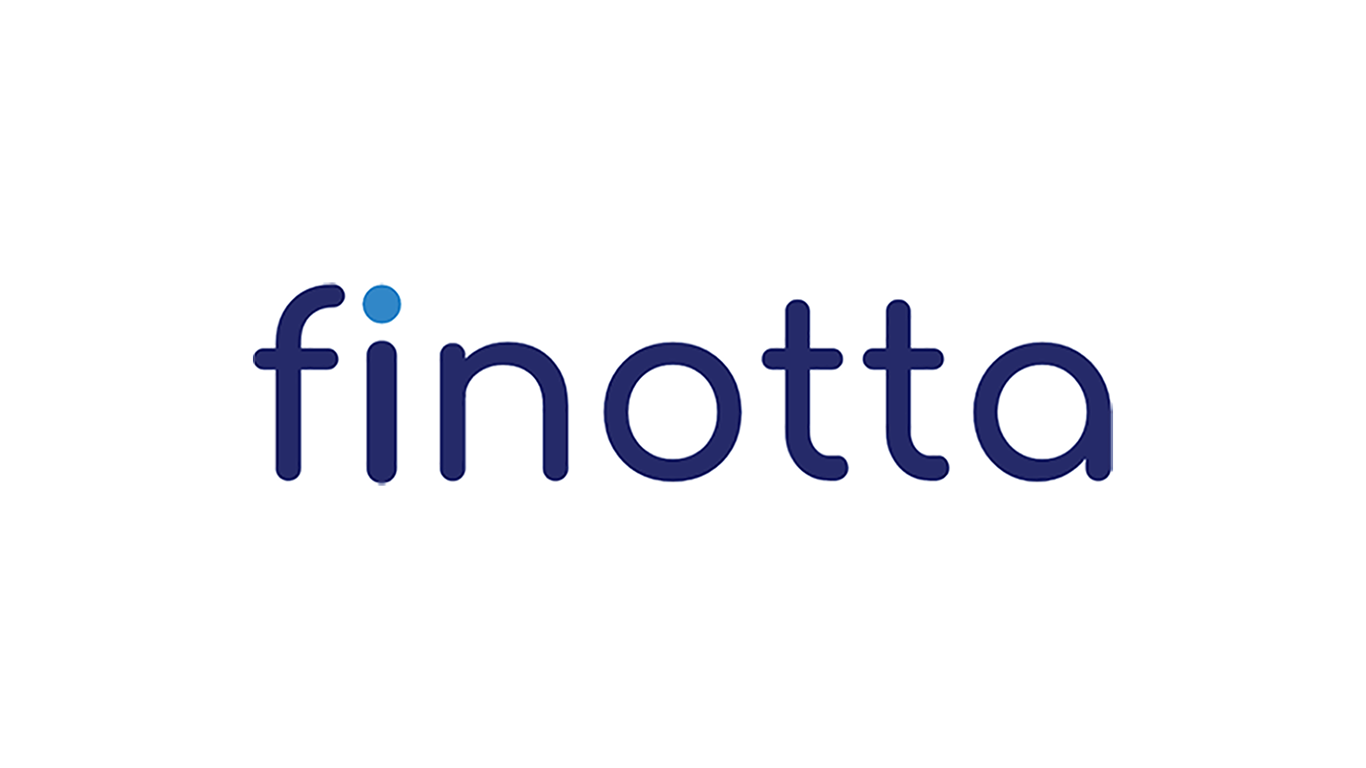
Finotta, a provider of embedded fintech for digital banking, announced today a 48% adoption rate of its Personified Platform with mobile users in less than 180 days since launching, almost double the industry average.
Leveraging Finotta’s exclusive Personalized Financial Guidance (PFG) technology, Personified proves it’s increasing engagement for mobile banking platforms, as well as supporting both financial wellness and deposit growth. The Platform is seeing month-to-month increases in adoption, demonstrating growing interest from users. Within the first 30 days, Personified averaged a 14% adoption rate. After 60 days, the rate increased to 30% and then to 38% after 90 days.
The Personified Platform acts as a Financial Journey Coach, detailing a user’s cash flow, expenses, debt-to-income ratio, and more. It prominently features recommendations in the app to improve financial health, like opening an emergency savings account. Because of these industry-redefining results, Finotta was recently named a finalist for Fintech Futures' Banking Tech Awards USA.
Personified also gamifies financial wellness, just like a fitness app. By demonstrating positive behaviours like saving money in a new emergency account or paying down a loan, users can accrue points and badges that work towards financial wellness goals and awards. As a result, customers have a fun and interactive way to improve their financial health, while at the same time generating new revenue for the FI.
“Interest in financial literacy is growing, and financial institutions are in a great position to help support that trend,” said Parker Graham, Founder and CEO of Finotta. “People are starting to recognize there is a lot they don’t know about finances in general – and they are looking for answers. Currently, more than 77 million people feel there is room for improvement in understanding personal finance. At the same time, they’re actively looking for guidance, especially among younger generations.”
Graham points out that this is extremely important as consumer debt climbs. According to The Federal Reserve Bank of New York, household debt increased to $17.05 trillion in the first quarter of the year across mortgage, auto and student loans.
Meanwhile, financial institutions are under tremendous pressure to attract and retain deposits. In fact, bank deposits fell by nearly $720 billion between the second and fourth quarters of 2022, according to the FDIC. Consequently, banks’ cash positions are at the lowest levels seen in the last several years.
“Consumer debt is mounting, and financial institutions’ reputation and growth are at stake amid recent bank collapses. Now is the time to act,” Graham notes. “With Personified, we’re helping FIs address both challenges in a sustainable way by merging the desire for personalization in a digital environment with consumers’ growing interest to make better financial decisions, all while increasing account openings and deposits. It is truly a win-win-win.”
Graham adds, “Traditional PFMs generally only see a 1-2% adoption rate, which does little to increase engagement or drive revenue for banks. At Finotta, we’re helping FIs generate real results. The Personified Platform allows institutions to substantially increase engagement by offering guidance. With over 40% of consumers wishing banks provided more personalized offers or information to help them achieve their financial goals, this is a real game-changer.”
Related News
- 07:00 am

Explore the best practices in credit risk modelling to overcome the challenging macroeconomic pressures, conflicting data and regulatory demands of the current credit risk environment.
In the current volatile environment, financial institutions need to remain on top of the recent developments in credit risk modeling, in order to reduce the risk of financial loss and regulatory misconduct. If banks do not appropriately model for these risks, then they could misallocate capital and make errors in their lending decisions which could consequently lead to dissatisfaction from the regulators and potential financial losses for the institution.
The GFMI 2nd Edition Credit Risk Modeling conference held in Chicago, IL on September 6 – 8, 2023 will equip the audience with practical solutions and experienced perspectives to better adapt to macroeconomic changes and account for the impact of the current volatile market in their credit risk modelling practices. The central challenges to be addressed include adjusting modelling techniques to fit market influences, incorporating climate risk considerations, and re-evaluating machine learning uses and limitations. Experts in this field will discuss practical examples to enhance regulatory modelling, deal with data limitations and future-proof modelling systems in credit risk. Register now for two days of interactive sessions and a must-attend workshop on day three!
Attending This Premier marcus evans Conference Will Enable You to:
Overcome the challenge of conflicting data in credit risk modelling
Strengthen existing frameworks for CECL Integration
Overcome the challenges of incorporating climate data into credit risk modelling
Assess the increase of non-performing loans and how to identify early warning signals
Use ML and AI to improve credit risk modelling practices
Assess the US-based CSA efforts and lessons from the EU and UK
Best Practices and Case Studies from:
Wei Zheng, Senior Vice President, Head of Credit Risk, U.S. Bank
Santosh Mishra, Head of Credit Modeling & Advanced Analytics, KeyBank
Imir Arifi, Head of Methodologies & Models in the Americas, UBS
Grace Duggar, SVP Head of Model Risk Management, China Construction Bank
Nathan English, SVP Head of Shared Risk Model Automation and Innovation, Regions Bank
Joe Peedikayil, Head of Model Development, Forecasting & Data Analytics, First Citizens Bank
For more information and registration discounts please contact: Ms Ria Kiayia, Digital Media and PR Marketing Executive at riak@global-fmi.com or visit: https://bit.ly/45oVRM5
Related News
- 03:00 am

Science Card is Britain’s first fully-featured current account and debit card dedicated to accelerating science and innovation. Alongside the expected consumer benefits of a modern account, Science Card is creating a new funding infrastructure by partnering with the UK’s leading universities to enable users to directly support impactful peer-reviewed scientific research: ranging from developing new vaccines to unlocking means to combat climate change. 10% of Science Card’s profits are committed to funding research, and users can also opt to make micro-grants and become patrons of specific projects (standing to benefit from any returns generated through research IP).
Science Card Limited - the fintech startup behind the Science Card current account with the ambition to ultimately become a bank in the near future - was founded in 2021 by Daniel Baeriswyl who, when a Biomedical Engineering PhD student at UCL, experienced first-hand the impact of academic funding constraints and was inspired to create a means for consumer-powered financial support for the scientific research sector. Science Card is committed to providing viable ways to make the banking sector fuel positive change, including developments in medical, environmental and social fields invariably secondary to more immediately profitable, but damaging, opportunities such as fossil fuel extraction. While ESG has become a common feature at most financial companies, Science Card aims to make an impact as directly as possible by funding progress at the source. Science Card will use the modern banking ecosystem to drive sustainability, combat climate change, create better healthcare, and supercharge scientific projects that will ensure a more sustainable and better future.
Science Card accelerates the speed at which university-led research projects receive funding: enabling a faster and more efficient transfer of money, reducing financial leakages, as well as removing layers of complexity traditionally associated with philanthropy. In a decade that has seen public health and environmental crises result in the public having a greater appreciation of the researchers and academics working to safeguard humanity’s future, Science Card enables its customers to engage with, and learn about, the work they support: through detailed information and updates about individual research projects, transparency on progress and milestones, and access to insights from researchers.
Science Card Founder and CEO Daniel Baeriswyl previously created and headed Magic Carpet AI Ltd (acquired by Blockchain.com in 2021). Science Card’s senior team includes Dr. John Vardakis, Senior Research Scientist at UCL and INSERM, as Head of Investment Group; Vytautas Savickas, holder of a PhD in Financial Computing from UCL and previously VP for Quantitative Research at J.P.Morgan, as Head of Engineering; Nick Andrews, 9 year board veteran of Wells Fargo UK, as Compliance Adviser and Prof. Yiannis Ventikos, Dean of Engineering at Monash University (Australia), as Scientific Advisor.
The Mastercard-branded Science Card is enabled through a partnership with Nordic card issuing and processing pioneer, Enfuce: utilising the Finnish startup’s cloud-powered Card as a Service platform.
The Urgent Need For UK Research Funding…And For Science Card
Funding for research and development (R&D) in the UK has fallen from 1.77% of GDP in 1985 to 1.67% in 2018 (well below the OECD average of 2.5% in 2019). This is despite a government pledge in 2022 to increase R&D investment to 2.4% of GDP by 2027, and a 2022 report by the Institute for Public Policy Research finding that the UK's R&D projects require an additional £62 billion a year to ensure the country is a global leader in science and innovation.
Furthermore, the pressure to source funding for STEM research has mounted since Brexit, with the uncertainty about the UK's participation in EU science schemes including Horizon Europe - the EU's €95.5 billion research and innovation fund - deepening concerns over the UK’s future access to European grants for scientific research. This continuing uncertainty around the future of funding for scientific projects risks stalling technological progress and causing a 'brain drain' as talented scientists move overseas, making the need to bridge the funding gap an urgent one.
Daniel Baeriswyl, CEO and Founder of Science Card says:
“During my PhD I experienced the impact of important research projects being underfunded, a common problem in academia that leads to many vital technological and medical advancements being abandoned. The UK has some of the world’s best minds in Science, but for us to continue to be able to carry out groundbreaking research projects, and fulfil our potential as a global powerhouse in science and innovation - something has to change. As it stands, it takes up to a year for funding to reach the research stage, so we created Science Card to circumvent the traditional processes and bring research closer to the source of money. Our mission is to combine the best consumer banking experience with the ability to fund scientific research, powerfully increasing the pace and scale of technological progress by more efficiently and quickly directing money to the right projects.
We aspire to use the power of finance to accelerate human knowledge with every product. Science Card is a step towards the fulfilment of our objective of building a socially-conscious bank to support science, healthcare and technology, and ultimately to help guarantee a sustainable future.”
How it works
Science Card is an online current account which customers access through an app, which with its Mastercard debit card allows them to use it as their primary spending account. Features include real-time transaction monitoring, spending controls and customisable vaults. Science Card also offers a dynamic way for customers to boost scientific research funding with its ‘one-click’ model.
Science Card’s customers drive real change simply through normal payments activity: a portion of its revenues from qualifying payments, and 10% of its profits are committed to fund scientific R&D projects at leading UK universities.
In addition to passive support through their everyday spending, the app also allows Science Card customers to round up purchase amounts or make one-off contributions as a way of supporting the research project of their choice. Within the app, customers can view and choose which scientific projects from which universities to support with contributions, as well as see Science Card’s total funding for all projects.
By making these contributions, customers can fund projects close to their hearts, become research patrons, make a direct contribution to future innovation, and also have an opportunity to own a part of each project’s intellectual property.
Customers can currently choose from two different accounts:
Standard Account
Science Card’s standard account enables customers to support scientific research projects of their choice through direct contributions as well as through round-ups from their everyday spending.
Premium Account
Science Card's Premium Account enables customers to make micro-grants to scientific research projects, so that they gain a share of the IP of the projects. If the project is subsequently spun out into a commercial entity this may generate a return through royalties or investment events.
Partnerships, growth and long-term vision
Science Card has partnered with the card issuing and processing pioneer Enfuce to launch the groundbreaking Mastercard-branded payment card.
Science Card’s initial launch is in the UK, with a targeted 30,000 customers and the goal of funding at least one scientific R&D project worth at least £300,000 within the first year. There are plans to expand Science Card to Europe and the US over the next few years through partnerships with leading universities in those markets. Ultimately, Science Card estimates that it will attract more than two million customers by 2028 and generate scientific funding worth upwards of £100 million per year.
Science Card’s product range will be broadened to include business accounts in late 2023, closely followed by sustainable lending in 2024 and beyond.
In the longer term, Science Card aims to apply and become Science Bank, a global fulcrum for accelerating discovery and technological progress.
Science Card Team
Daniel Baeriswyl, PhD - CEO and Founder
Daniel founded Science Card in 2021 as a way to bring a new form of mass support to scientific progress. Prior to founding Science Card, Daniel founded and led Magic Carpet AI - an AI trade engine, capable of quantifying thousands of assets in a fraction of a second which was later acquired by blockchain.com. Holding a PhD in Biomedical Engineering from UCL and having spent time as a researcher at Caltech, Swiss-born Daniel bore witness to the constraints placed on funding for scientific research, spurring him on to find an innovative solution.
Vytautas Savickas, PhD - Head of Technology
With a background in both academia (PhD in Financial Computing from University College London) and finance - having worked at Deutsche Bank, ING and principally J.P.Morgan - Vytautas has experience straddling both banking and scientific research, making him well placed to understand the contours of the chasm Science Card bridges.
John Vardakis, PhD - Head of Science and Investment
John has worked extensively as a research scientist at institutions including Oxford University, University College London and the French National Institute of Health and Medical Research, leaving him with a deeply-established network across universities in the UK and Europe. John holds a PhD in Biomedical Engineering.
Related News
- 07:00 am
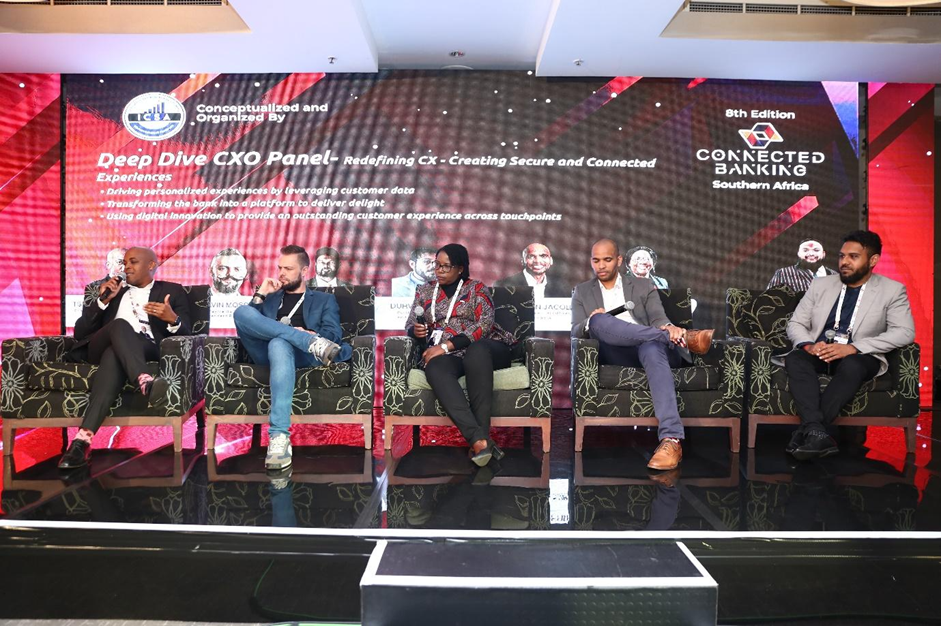
The banking, financial services, fintech, and tech fin sectors witnessed an extraordinary convergence of brilliance and innovation at the 8th Edition Connected Banking Summit Southern Africa – Innovation & Excellence Awards 2023. This prestigious event, held on 24th May 2023 at the Southern Sun Rosebank In Johannesburg, captivated the minds of industry leaders, inspiring and enlightening them with ground-breaking insights.
Attendees were treated to a range of informative sessions, covering topics such as Bridging the Digital divide, Accelerating Transformation in Banking, Digital Inclusion vs Digital Inequality, Biometric Authentication, Building Block chain of Africa’s Digital Economy, Emergence and Importance of African Region, Cyber Resilience Strategy and many more. the topics covered during the event were both timely and thought-provoking.
The stage was graced by luminaries such as Bradwin Roper - MTN (Fintech), Frank Molla- BPC Banking Technologies, Chen Zhentao- Huawei, Gur Geva- Iidentifii, Richard Southey- Absa Group, Charity Chitalu Mwanza- Digital Paygo, Shadrack Kubyane- Coronet Blockchain, Daniel Teixeira- Pure Storage, Maurits Pretorius- Payments Association of South Africa, Kwasi Frimpong- Citibank, Gavin Moss- Standard Bank, Pragashani Reddy- Standard Bank South Africa, Bianca Butler- Nedbank, Cheslyn Jacobs- TymeBank, Tsholofelo Mokhosi- Absa Group, Kumaran Selvarajalu- The Banking Association South Africa, Dr. Sizwe Gwala- Absa Group, Tshediso Khuzwayo- Capitec Bank, Yudhvir Seetharam- FNB South Africa, Durvesh Maharaj- Vodacom, Yash Nannoolal- Nedbank Group.
Furthermore, the event showcased the brilliance of various companies and individuals who were recognized for their outstanding contributions to the BFSI sector, including Bank of the Year- Standard Bank South Africa, Excellence in Investment Banking- Absa Group, Excellence in Mobile Banking App- FNB South Africa, Excellence in Digital Bank: Capitec, Excellence in Sustainable Finance- Nedbank, Excellence in Digital, Transformation Implementation- TymeBank, Excellence in Asset Management- Sasfin, Excellence in SME Finance- Capitec, Excellence in Foreign Exchange- RMB - Rand Merchant Bank, CEO of the Year- Mike Brown, Nedbank, CIO of the Year- Sabelo Nkwanyana, Standard Bank Group CTO of the Year- Andrew Baker Capitec, CDO of theYear- Richard Southey, Absa Group, CISO of the Year- Del van Rooyen, Sasfin; Digital Transformation Provider of the Year- Huawei Enterprise South Africa, Excellence in Payments Solution- BPC Banking Technologies, Excellence in Data Storage- Pure Storage.
The resounding success of the 8th Edition Connected Banking Summit Southern Africa – Innovation & Excellence Awards 2023 would not have been possible without the invaluable support of our sponsors. Official Digital Financial Partner – Huawei, Official Storage Partner- Pure Storage, Official Gold Sponsor –BPC Banking Technologies, iidentifii, Official Networking Sponsor –Digital PayGo, nissi Human Capital Solutions.
With attendees leaving the summit enriched by profound insights and enriched connections, the stage is now set for the upcoming West Africa edition scheduled for 15th and 16th November 2023 in Accra Ghana. Anticipation is high as we prepare to bring together the brightest minds and showcase the pinnacle of innovation once again.
Related News
- 08:00 am

Tabby, the MENA’s leading shopping and financial services app, has successfully closed a new financing round resulting in upsizing its debt facility to $350 million, over a 2X increase since its last debt raising announcement.
The round involved the participation of key global credit investors, led by San Francisco-based Partners for Growth (PFG), who provided Tabby’s first institutional debt facility and supported the ongoing expansion to include New York-headquartered Atalaya Capital Management, and CoVenture, a multi-strategy asset-management firm from Miami.
The upsizing of Tabby's credit facility reflects the remarkable growth the company is experiencing with over 4 million active customers who are taking control of their finances with more flexibility. Tabby has now partnered with over 15,000 businesses, including the top 10 largest retail groups in the region, growing their business by offering their customers their most preferred way to pay. Tabby’s success extends to offline sales with now over 280,000 Tabby Cards issued in the UAE.
Hosam Arab, CEO and Co-Founder of Tabby said: "We are thrilled to partner with exceptional investors Atalaya, CoVenture and PFG to continue supporting Tabby’s growth and redefining what people can do with their money.”
Justin Burns, Managing Director at Atalaya Capital Management: "We are excited to continue to partner with Hosam and the rest of Tabby’s exceptional team in their mission to create financial freedom for consumers in the region. Tabby’s ability to deliver robust topline growth while simultaneously improving economics is a rare accomplishment."
Armineh Baghoomian, Managing Director and Head of EMEA at Partners for Growth said: "We have continued to be impressed by how Tabby has redefined the way people shop in the UAE and Saudi and empowered them to embrace financial freedom, while solidifying Tabby's position as a leader in the BNPL industry. It has been a privilege to work with Tabby from establishing its inaugural facility to seeing the business grow tremendously."
Michael Breitstein, Managing Director at CoVenture said: "CoVenture is excited to expand its thesis on global FinTech into the MENA region, especially given how impressed we are with Tabby's management team and impactful, fast-growing product."
The additional financing will support Tabby’s core buy now, pay later business and allow it to serve more customers, retailers and purchases. The Tabby app sees more than 20,000 daily installs and drives over 5 million store visits a month, becoming a major shopping destination for millions of customers to discover brands, trending styles and exclusive deals.
Related News

Jeremy Baber
CEO at Lanistar
First, it was the traditional bricks-and-mortar high street bank to fall out of favour with customers, then physical cash itself – now, time could be up for p see more
- 07:00 am

Jumio, the leading provider of automated, end-to-end identity proofing, risk assessment and compliance solutions, today released the Jumio 2023 Online Identity Study, the second installment of its annual global consumer research, conducted by Censuswide. This year’s results highlight an understanding among consumers around how generative AI and deepfake technologies could accelerate identity fraud, and the subsequent need for digital identities for online verification and authentication. But consumers also appear to overestimate their ability to spot deepfakes, which can render them even more vulnerable to attack.
The study examined 8,055 adult consumers split evenly across the United Kingdom, United States, Singapore and Mexico. Over two-thirds (67%) say they are aware of generative AI tools – such as ChatGPT, DALL-E and Lensa AI – which can produce fabricated content, including videos, images and audio. Awareness was highest among consumers in Singapore (87%) and lowest among those in the UK (56%).
An underestimation of the sophistication of the technologies
Awareness of generative AI and deepfakes among consumers is high — 52% of respondents believe they could detect a deepfake video. This sentiment reflects over-confidence on the part of consumers, given the reality that deepfakes have reached a level of sophistication that prevents detection by the naked eye.
This is concerning given that recent figures from UK Finance found that impersonation scams cost the UK £177 million in 2022. The research specifically called out how this has been driven by scams becoming harder to spot as warning signs, such as typos or fake-looking websites, are less prevalent due to the use of generative AI tools. In the U.S., consumers lost $2.6 billion to impersonation scams in 2022, up from $2.4 billion in 2021, according to the Federal Trade Commission.
Jumio data also shows a steady uptick in the use of increasingly sophisticated deepfakes across the globe and across industries, with a heavier presence in the payments and crypto sectors.
“A lot of people seem to think they can spot a deepfake. While there are certainly tell-tale signs to look for, deepfakes are getting exponentially better all the time and are becoming increasingly difficult to detect without the aid of AI,” said Stuart Wells, Jumio’s chief technology officer. “While AI-powered technology will increasingly be required by businesses to spot and protect their networks and customers from deepfakes, consumers can protect themselves by treating provocative images, videos and audio with skepticism. Some quick research will usually uncover whether it’s a fake or not.”
Awareness shifts to understanding of potential harmful use
As consumers become more aware of these technologies, there is also an emerging understanding of how they could be used to fuel identity theft. Over half (57%) believe that online identity theft will become easier as a result, and consumers in Singapore showed the highest level of understanding of their potential harmful use (73%). These levels decrease among consumers in Mexico (62%), the U.S. (49%) and the UK (43%).
The onus is on businesses to educate and better protect
“Organizations have a duty to educate their customers on the nuances of generative AI technologies to help them develop more realistic expectations of their ability to detect deepfakes,” said Philipp Pointner, Jumio’s chief of digital identity. “At the same time, even the best education will never be able to completely stop a fraudster’s use of evolving technologies. Online organizations must look to implement multimodal, biometric-based verification systems that can detect deepfakes and prevent stolen personal information from being used. Encouragingly, our research indicated strong consumer appetite for this form of identity verification, which businesses should act on fast.”
The survey found that over two-thirds (68%) of consumers are open to using a digital identity to verify themselves online. The top sectors where they would prefer a digital identity over a physical ID (like a driver’s license or passport) are financial services (43%), government (38%) and healthcare (35%).
Find additional data and insights here.
The research was conducted by Censuswide, with 8,055 consumers split evenly across the United Kingdom, United States, Singapore and Mexico. The fieldwork took place April 4-6, 2023. Censuswide abides by and employs members of the Market Research Society which is based on the ESOMAR principles.
Related News
- 05:00 am
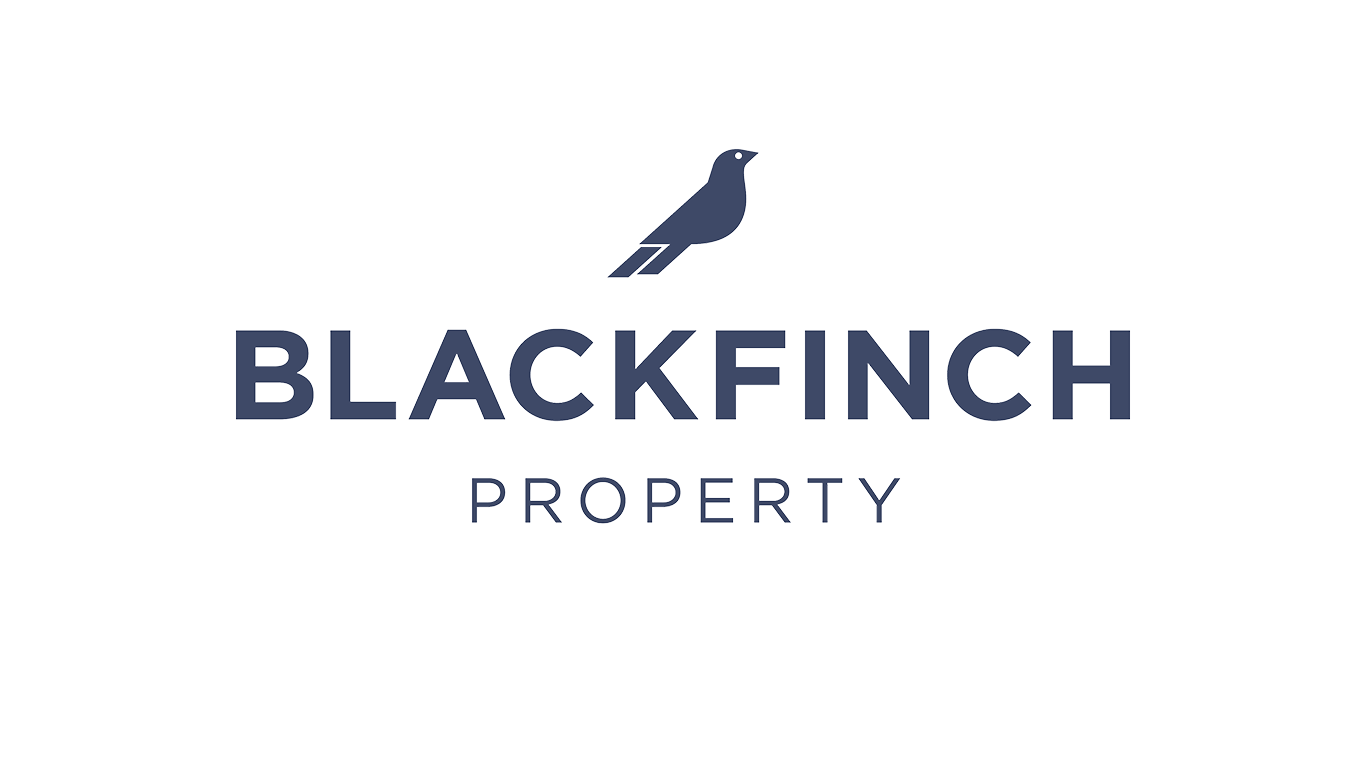
Blackfinch Property, a rapidly growing agile lender to the UK property market, has completed its largest loan to date, a £20m refinancing for a mixed portfolio of 54 residential and commercial properties across East London.
The 24-month deal from Blackfinch Property will enable the landlord to continue to provide high-quality residential and commercial properties to London tenants, with funds also released for further improvement works. All investment opportunities at Blackfinch Property are scored against criteria that will deliver Environmental, Social and Governance (ESG) benefits. This loan is structured to incentivise the borrower to improve the Energy Performance Certificate (EPC) ratings for the 30% of the properties that were less energy-efficient should the energy-saving work be completed in time.
During a period of mortgage rate uncertainty, the fixed rates offered under the commercial term loan also provide some certainty for the borrower.
Phil Downie, Blackfinch Property investment manager, said: “We're very pleased to support this experienced landlord in providing the highest quality homes and workplaces for Londoners. This is Blackfinch’s largest loan to date and is backed by top London real estate with the interest fully serviced by the underlying income. The properties already represent some of the best homes in their markets and will be further improved over the loan term by upgrades to their energy efficiencies.”
To complete the deal, the Blackfinch in-house legal team created a bespoke approach to its due diligence process that sped up the transaction and saved the borrower fees. Reports on titles were completed for a representative sample of properties, with an insurer providing title insurance for the remaining properties. This customised approach demonstrates the flexible, entrepreneurial and practical approach taken by Blackfinch Property to meet the needs of its borrowers.
Blackfinch Property has been enjoying a period of high growth which has seen the launch of new products and the signing of new deals. Their previous largest loan was a £14.8m residential development loan in the South East completed at the end of 2022 and the loan book has increased by 61% over the last year. This is the seventh commercial term loan issued by Blackfinch Property since the new product launched in January 2023, with the first helping to secure the future of a popular restaurant just outside of Birmingham city centre.









